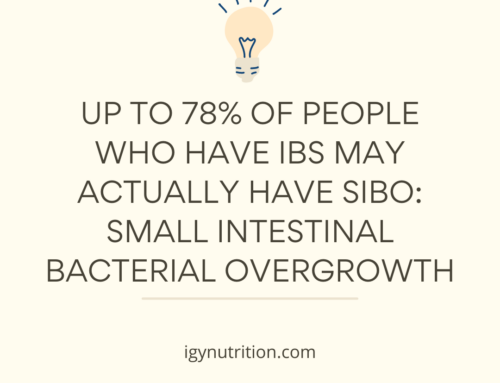Why are some people prone to catching colds while others seem to have immune systems made of steel?
We can think about this by examining what happens to our bodies when we get sick. Of course, we all know that germs invade our bodies and cause sickness. But what makes some people better at fighting germs off than others? And what does it have to do with gut health? Let’s take a look at immunity antibodies.
Immune Cells
When pathogens invade the body, they begin causing damage to our cells. To prevent them from harming us extensively, cells of our immune system kill and remove the invaders. Once they’re gone, they can no longer wreak havoc on our bodies.
Part of making sure we stay healthy is preventing invaders from getting into our bodies in the first place. The gut is one of the most accessible entrances to the body for invaders. Think about it – we’re always putting germ-covered foods and items in our mouths.
When was the last time you replaced your toothbrush? What about thoroughly washing your fruit? Yeah… same here.
That’s why we have many immune cells concentrated in our guts: germs enter the digestive system 24/7.
The tricky part for immune cells is identifying invaders. First, they must be able to differentiate pathogens from our native cells. Mixing this up can cause autoimmune conditions. Determining probiotic microbes from harmful microbes living in the microbiome is even more challenging.
So how does our immune system “learn” which microbes are dangerous and which are not? This identification process is where gut health comes into play.
Identifying Invaders
We have several types of immune cells in the body, but one type is particularly crucial for gut immunity: B cells. B cells create antibodies and deploy them in the intestines. Quick reminder: immunity antibodies are proteins that bind to and kill their target. You can think of them as bullets that work against enemies.
Each B cell identifies an enemy, manufactures a bullet (an antibody), and pulls the trigger.
B cells’ antibodies also act as signals to other immune cells; other immune cells notice that bullets have been fired and migrate to the site to help out. This process allows other immune cells to “learn” which pathogens are harmful.
So, B cells are the star of the show. Without them, pathogenic bacteria reign (relatively) free. We must protect them at all costs!
Missing B Cells
B cells are precious to our gut health; anything that harms them can dampen our immune response and potentially propel dysbiosis.
Irregular motility (like diarrhea), overuse of antibiotics, and some autoimmune diseases decrease beneficial bacteria and the number of B cells in the gut. Without beneficial bacteria as competition or B cells as security guards, harmful bacteria have much higher odds of taking over the gut microbiome.
Getting your microbiome right is critical to supporting adequate B-cell function (and, thereby, your immune function). Supplements like bovine colostrum, probiotics, and IgY Max, which help regulate and rebalance the gut microbiome, likely improve our gut’s immune system. Consult your healthcare practitioner to decide on the appropriate protocol for you. Check out our blogs on IgY Max to learn more about how balancing your gut microbiome and immunity antibodies can improve dysbiosis.
A healthy gut microbiome fosters a healthy immune response. Tag us in your digestive health journey @igynutrition on Instagram! Happy mixing.




